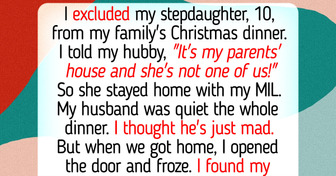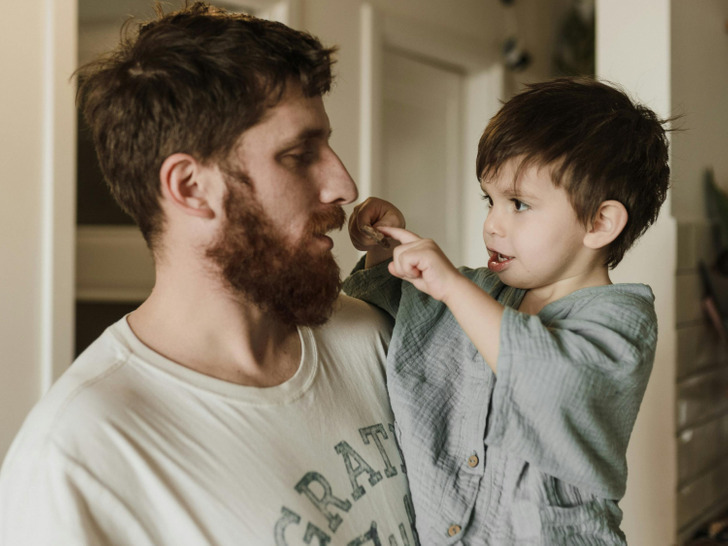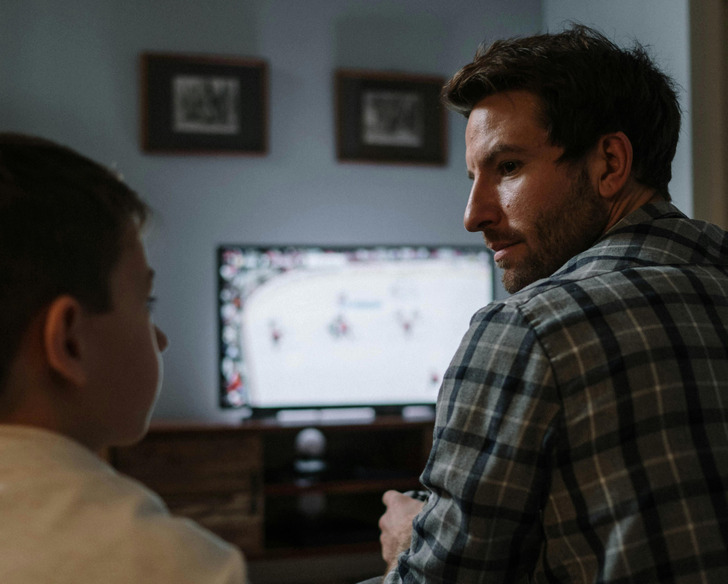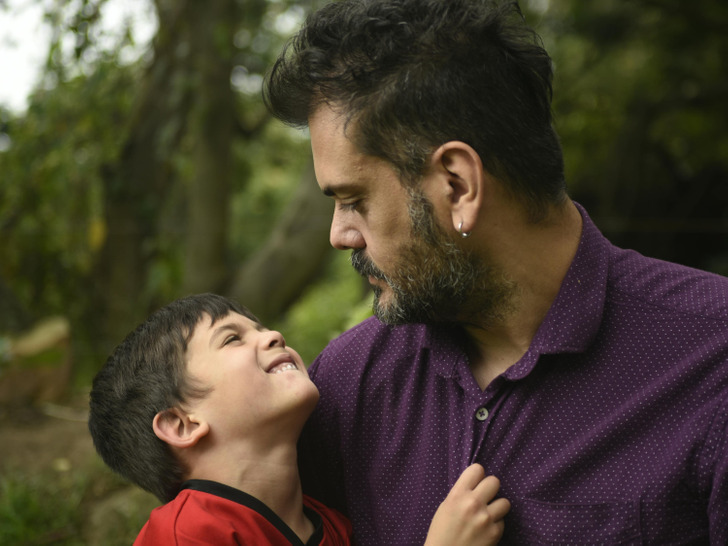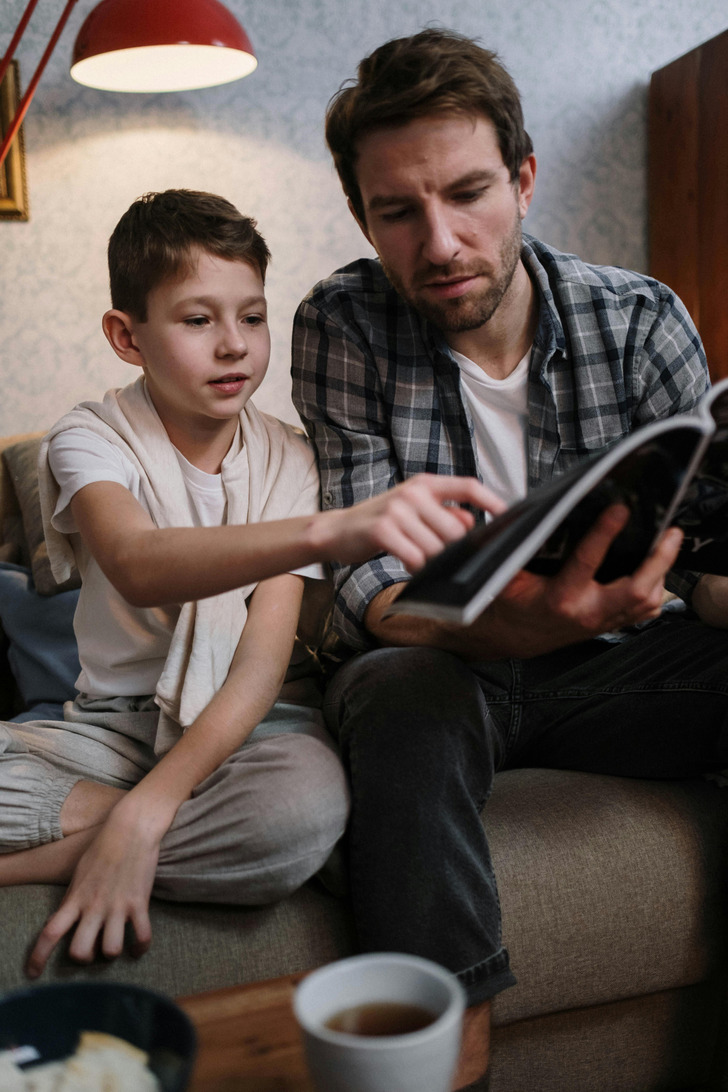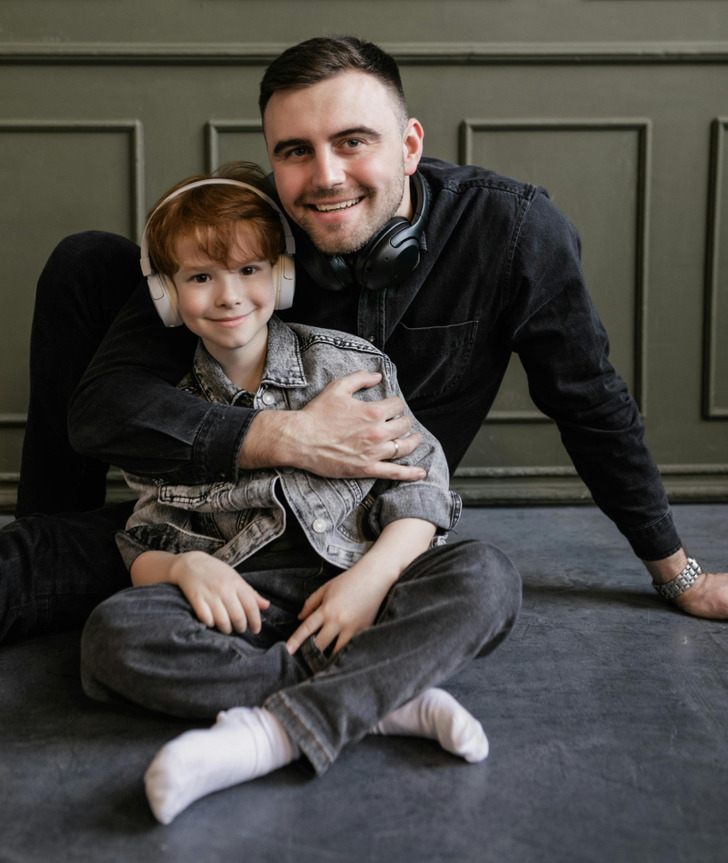Have you ever seen thought the sudden changes in his life might have been very traumatic for him? You should consider counseling for your son and for you so you'll know how to help him through this.
I Refused to Hug My Little Boy—His Reaction Broke My Heart
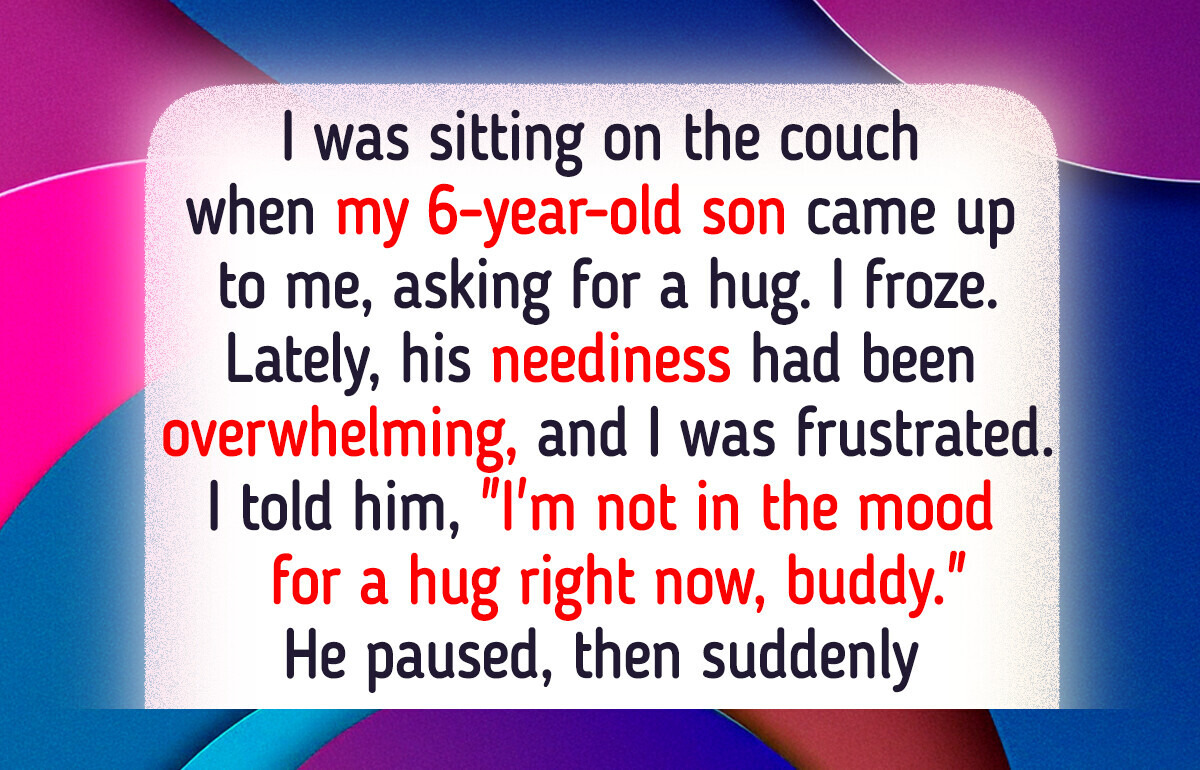
Given that it is human to err, clearly, we as parents tend to make plenty of mistakes. However, feeling excessive guilt over mishaps and not being able to move forward from there can be a cause for concern, just like this father, who wrote to us anonymously, wondering how to get things back on an even footing. Here’s his letter to us, which is a cry for help.
I think I hurt my little boy very badly!
I recently separated from my wife, and have full custody of our 6-year-old. He’s always been close to me, and since my wife is remarrying, she felt it would be better if he stayed with me. I love him to bits, of course, but lately, he has been terribly clingy.
He goes to school and then to a daycare, but the moment I pick him up and take him home, he sticks to me like glue. He wants to be cuddled, wants me to play with him, to help him for this and that. It’s fine, I’m a full-time single parent, so I get it. I try to be with him as much as possible, but lately, his neediness has been overwhelming, and I am frustrated.
Now, I feel super-guilty.
He doesn’t want to sleep alone, wants to watch TV with me (I am sick of watching 6-year-old appropriate shows!). The moment we get home, he will come up for hugs every 5 minutes. I tried to give him a hint, telling him to ration his love in case it all ran out. I also told him that I just need a little time for myself. He seemed to back off for the day, but the next day, we were back to the same.
I was sitting on the couch when he came up to me, asking for the umpteenth hug of the day, and I simply froze. I told him, “I’m not in the mood for a hug right now, buddy.” He paused, then suddenly stepped back. His face crumpled, and I thought he would cry, but he didn’t. Instead, he nodded and turned away. My chest tightened, and I felt this massive weight of guilt. I’m not a bad parent, but somehow, I feel like a failed my son.
Do you have any advice for me, other than telling me not to do it again?
Firstly, we applaud you for your honestly, it could not have come easy. Let us first remind you, that there are moments for everyone, when parenting feels like too much, especially when you’re doing it alone. You just separated from your wife and became a single parent, so clearly, there is a lot on your plate.
Please know that you are not a bad parent. In fact, from everything you have shared with us, it’s very clear you’re an attentive, loving, and responsible dad. What happened isn’t a parenting fail, but it is a warning, signalling deeper distress in both you, and your son. This is what we feel you can do, without sacrificing your mental health, or his security in you as his father.
1. Understanding your child’s perspective is super important.
Your son is six years old, just to understand that there has been a big change in his life, but without the mental capacity to actually process all his emotions, or being able to express them. He might be close to you, but not having his mother around is a very big change for him.
His clinginess is a sign of losing parental security, and his confusion about the new situation he is in. He might be panicking, and uncertain about this new life, but unable to actually put these complex emotions into words. When he comes to you repeatedly, it might be his way of asking: “Am I still safe? Do I still belong here completely? Can I trust this new version of life?”
Remember, he’s not actually trying to tire or frustrate you. For now, you’re the only part of his life that still feels stable, and he is holding on tight.
2. Delve into your deeper feelings.
From being a couple, suddenly you are a single parent, as well the breadwinner of the family. You have to basically do everything. While you are trying to make sure nothing else goes wrong, there is no one actually helping you do it, on a daily basis. You might have entered survival mode to cope, but as a single dad, you need to take of yourself, to be able to extend that very loving care to your son.
The idea here is not just to avoid such incidents, because they could happen. It is to communicate to your son that if and when you ever say no, again, it doesn’t mean that you don’t love or want him anymore. It simply means you need a break, just like he does.
You simply have to make time for yourself, so that frustration doesn’t make you lash out again.
3. Here are concrete steps you can take to reassure your son.
- Make a proper routine with together time: Kids thrive in structure and routine. Set a daily routine with maybe a dad-son ritual woven in. It could be you reading to him, playing catch with him, or anything that both of you love doing. Title it “our time” and you may see a change in him within the first week. A proper routine with time spend together, every day, will give him the security he needs, and the leeway for you to create boundaries, for when you need some time alone.
- Take out time for yourself: It won’t happen overnight, or maybe even in a week, but you need to explain to him that you need time, alone, to recharge yourself. Your “me time” cannot be pretend breaks while he’s in the next room watching TV, or waiting for you to help him with schoolwork. Get help, be it a babysitter or family members, who can maybe give you a few hours of time away from being a parent in the weekend.
- Reassure him of your love: The moment he stepped back and didn’t cry? That’s a sign that you are on a good footing with him, and he did not associate your refusal with rejection. The next time, though, don’t just refuse, follow it up with some for him to believe in. For example: “I can’t hug you right now, buddy, I’m very tired. But I’m thinking about you while I rest, and I’ll be ready for a big, bear hug in 10 minutes.”
This teaches him that your love will always remain. It’s not conditional, and a refusal does not mean loss of love. Also, waiting to hug you, also teaches him to self-regulate his emotions, and slowly, this will let your love be his safety and security once again.
4. Finally, shake off the guilt.
When you froze on the couch, refused to hug him, and he turned away, rest assured that it wasn’t a parenting fail, rather a relationship moment. Call it tough love, but it taught your son to be emotionally resilient. He didn’t cry, told you he understood, and then went away. That’s a beautifully mature moment from a 6-year-old.
Now, follow it up with reconnection. Tell him: “Hey, remember when I said I wasn’t in the mood for a hug? I saw your face, and I think that hurt. I want you to know I love you even when I need space. You didn’t do anything wrong.”
This way, you teach him how to do emotional repair, on his own. As a single parent, you don’t have to be a superhero. All you have to be, is a loving father, which you already are. Just let the guilt go.
We hope this helps, and that you and your son find happiness now, and in the future. Here’s a set of dad stories to cheer you up, given they too broke rules!
Comments
All I can say is shame on you dad. He's felling insecure and needs you to be a consistent initiator when it comes to your affection instead of always being him. There will come a day, much sooner than you can imagine, that all that love pouring out of your magical miracle little boy will stop because he will start be be shaped by all the worlds negativity. He will no longer be yours alone to teach, shape, and mold into a man. You will miss him and those hugs soon enough
I get it!! I have issues where I don't like to be touched so hugs were hard for me. Still are but I learned a quick hug and they are good to go. I completely get it. He will be fine just let him know daddy sometimes doesn't like hugs. My kids are older now so they ask first... except my middle daughter she's a love bug.
Your 6-year-old is going through the same divorce as you. You're upset cuz your wife is gone, imagine how the baby feels with his mother being gone and now his father doesn't have the patience to give him the attention he craves. But yeah, no the kindergartner is absolutely the one in the wrong here. Definitely not you.
Related Reads
I Let My Kids Play Outside Alone and Child Services Showed Up at My Door
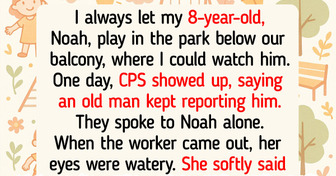
Store Workers Tried to Humiliate Me for Gentle Parenting, So I Made Them Regret It
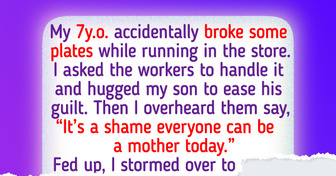
10 Moments That Prove Kindness Still Wins in an Unfair World
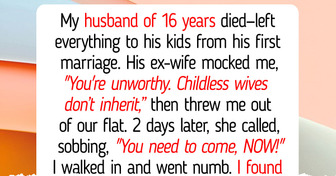
18 Stories That Prove Your Gut Feeling Is Actually a Superpower You Shouldn’t Ignore
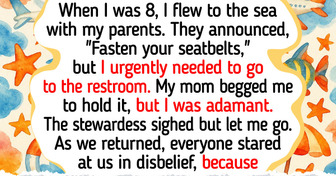
15 Moments That Inspire Us to Keep Our Kindness, Even When the World Gets Heavy
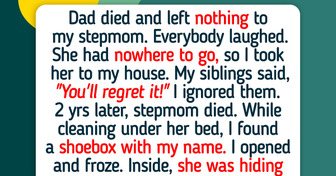
12 Moments That Prove Kindness Is More Powerful Than Anything Else
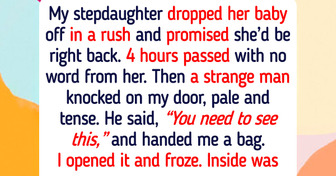
I Was Denied Remote Work Despite My High-Risk Pregnancy
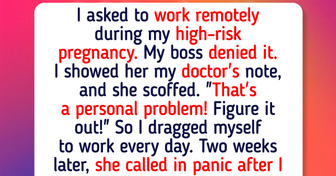
I Refuse to Let My Daughter Treat My Home Like Her Business, I’m Not Her Personal Maid
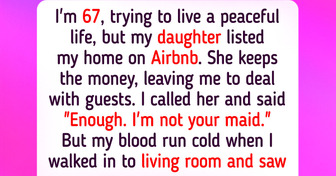
11 Moments That Prove Quiet Kindness Still Changes Everything
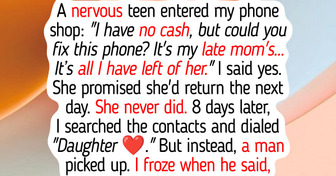
I Cut Off My Son for Not Wanting Kids—He Made Me Regret Every Word
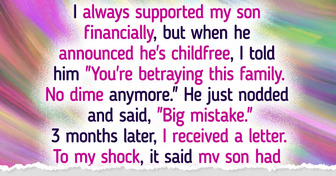
I Refuse to Work With the Boss Who Destroyed My Career —Or Keep My Mouth Shut

18 Moments That Prove Kindness Is the Thread That Holds the World Together
